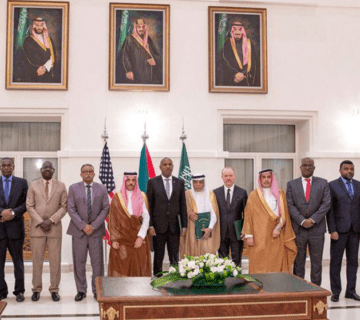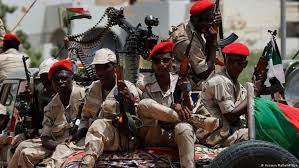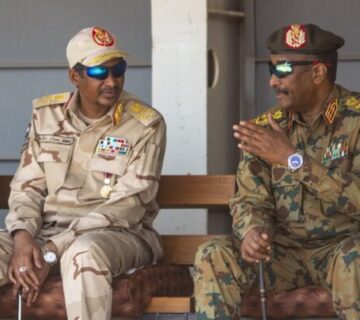On October 23, 2019, Russian President Vladimir Putin welcomed African leaders to Sochi for a two-day inaugural Africa-Russia Summit that focused on peace, security, and development. All countries in the larger Horn of Africa were represented by high ranking government officials. In total, 43 out of 54 African heads of states and governments attended the just-concluded conference. The Summit was held at a time when the African Union’s 2020 theme, Silencing the Guns, Owning the Future, is being used to rally the continent and its allies to work toward ending all conflicts in Africa. Russia and all other allies of Africa should, therefore, ensure that their activities in Africa do not undermine this noble aspiration.
According to Swedish Defense Research Agency, Russia has inked more than 20 military agreements with African countries since 2015, and continues to negotiate for more deals. The agreements range from the sale of weapons to the training of military personnel. While providing military assistance is not immoral, it is important to ensure that it is not used to undermine peace and stability in Africa. In Central Africa Republic (CAR) for instance, Russia has been supplying weapons to the government since 2018. According to Sergei Lavrov, Russia’s Minister of Foreign Affairs, CAR’s latest batch of ‘free weapons’ was received in September 2019.
CAR has been experiencing conflict since 2012, with state authority barely transcending beyond the capital city, Bangui. Armed groups control territories in several parts of the country, and previous peace deals were short-lived. The latest deal, which was brokered by the AU on February 6, 2019, has helped maintain a ceasefire in many parts of the country for seven months now.
Recent developments indicate that security in CAR is still in a precarious position. Some parties have begun to violate the ceasefire agreement and the government is yet to take steps to integrate some of the former combatants into the national army three months to the agreed deadline. Under these circumstances, there is genuine fear that availability of weapons to either party at the moment, including the government can be a strong incentive to start another round of violent confrontations which CAR cannot afford.
Russia’s voting record at the United Nations Security Council (UNSC) on issues of peace in Africa is also a matter of concern. On May 30, 2019, Russia withheld its vote against the renewal of the UNSC-imposed arms embargo on South Sudan. This was after an investigation by the UNSC Panel of Experts revealed that arms continue to flow freely into the hands of combatants thus jeopardizing efforts to restore peace. Abstaining on such a crucial vote, therefore, sends a wrong message to violators of international humanitarian law, and also complicates the work of the United Nations Mission in South Sudan (UNMISS).
Russia’s support for autocratic leaders in the continent is also problematic, and a threat to peace. The AU Charter on Democracy, Elections, and Governance requires all member states to respect term limits. This is because the insistence of some leaders in Africa to stay in office beyond their term has, on most occasions, ended violently. In January 2019, Russia’s ambassador to Guinea, Alexander Bregadze publicly voiced support to President Alpha Conde’s efforts to change the constitution and award himself another term in office. Moscow neither reprimanded nor disowned Bregadze’s sentiments thus signaling concurrence. 10 months later, Guineans are protesting on the streets of Conakry against Conde’s attempts. So far, nine civilians have lost their lives in confrontations between protesters and security forces.
Russia has also said that the UNSC should stay out of Burundi’s internal issues. This is even after the UN investigators warned that the 2020 general election is likely to be held in the existing ‘climate of fear and intimidation’. President Pierre Nkurunziza’s party has been accused of unleashing violence against its opponents. More so, Moscow has extended financial support to the Nkurunziza’s government thus helping it survive the consequences of sanctions that were imposed by the UNSC after the botched 2015 general elections. It is this kind of support that has emboldened President Nkruruziza to refuse to engage with other stakeholders in Burundi with a view of solving the country’s problems.
Lastly, Russia’s failure to curtail the activities of Russian private military contractors such as the Wagner Group is appalling. According to the Foreign Policy Research Institute, the Wagner Group operates in several countries across the world including Libya and CAR. In 2018, while meeting President Putin, the now ousted Sudan’s President Omar Bashir also acknowledged that the group was in Sudan to train Sudanese security forces. The operations of this group are shrouded in secrecy making it impossible to hold them accountable for their actions.
It is against this background that African leaders must ensure that any deal with Russia is above board, beneficial and not an entry point for Moscow or its military agents to conduct covert military operations. The AU should also be on the lookout and courageous to speak out when Russia acts in ways that could undermine peace and security.
Elvis Salano is a Research Assistant at the HORN Institute.
Photo: President Vladimir Putin of Russia (center) with a section of African leaders during the Russia-Africa Summit on October 23, 2019 (Photo Credit: Shutterstock)



